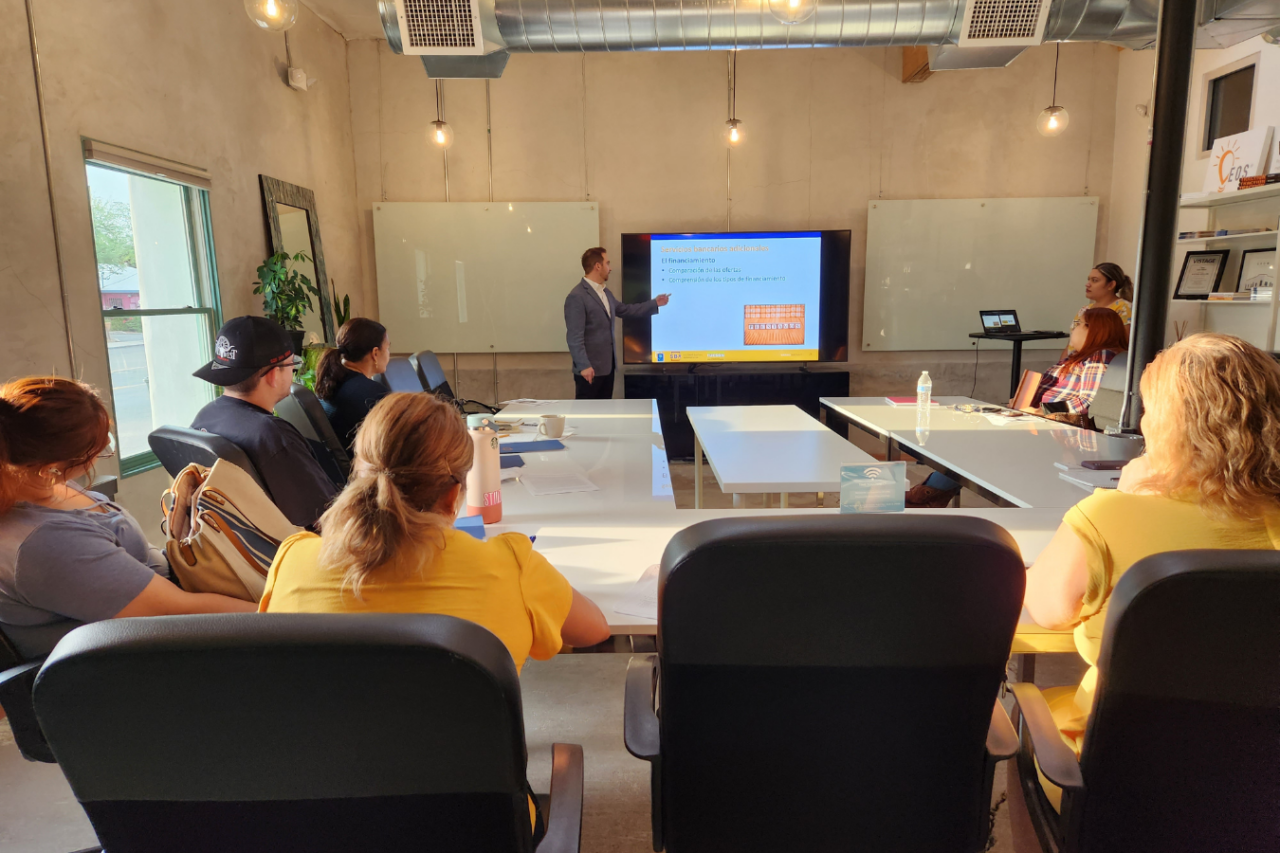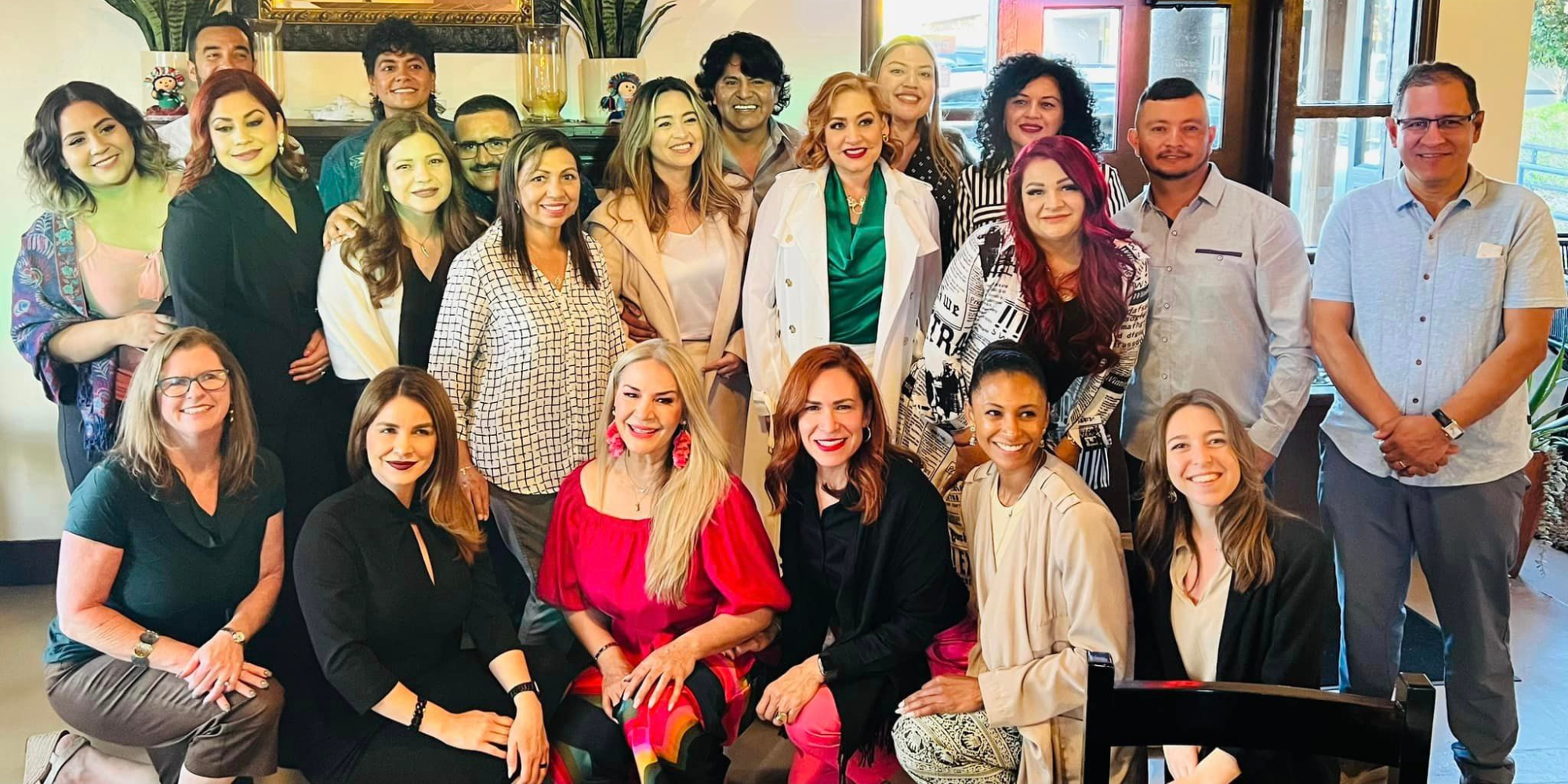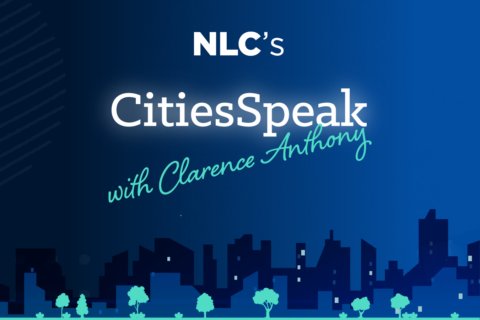The City of Tucson has a large Hispanic/Latino population (approximately 45%), yet historically this group has had comparatively less access to capital, resources, and less representation. To work toward greater economic equity, the city has been intentional in recent years in supporting Hispanic/Latino entrepreneurship and small business owners.
A concerted focus on the needs of Tucsonan Hispanic/Latino small business owners has been led by Tucson’s Mayor Regina Romero, Small Business Team Project Manager Francisca Villegas-Braker and executed by the city’s team of Business Navigators, Narda Flores, Nicole Sanderson and Gisselle Coronado, who work within the Economic Initiatives Department of the City of Tucson. This team was formed in early 2022 to build a system of support for Tucson’s entrepreneurs through training, providing technical assistance and connection to resources. To best cater to the Hispanic/Latino population of Tucson, business support classes and one-on-one support sessions are offered in Spanish.
How Tucson is Doing It
There are myriad ways Tucson’s Office of Economic Initiatives hopes to and has begun to see success in more intentionally engaging with the Tucson Hispanic/Latino entrepreneur community, especially as many businesses in Tucson are still recovering from the pandemic. The office has offered many classes to intentionally fill gaps in the already robust startup ecosystem where courses were not previously offered in Spanish. As one indicator of the success of the program so far, in February 2023, 20 percent of calls to the city’s Small Business Support Phone line came from Spanish-speaking Tucsonans as compared to less than 1 percent a year prior. With their focus on supporting Hispanic/Latino business owners, Flores stated that their team observed early on a certain obstacle: Many entrepreneurs did not have access to a computer. Flores shared, “Things we see often, whether we’re offering digital marketing classes or financial literacy classes, a lot of times practicing new skills require access to a computer, whether through an Excel file, a quality camera for good photos, and for remote access [for participants to engage in educational programming].”
Based on this observation, the team decided to partner with NLC’s City Inclusive Entrepreneurship (CIE) program and CIE partner and program expert Prospera to write a grant application to fund their new mobile media lab. Funds received will be used to purchase 20 laptops, a mobile charging cart, and professional camera and video equipment. Offering computers to participants in their courses allows the city team to turn lectures into workshops with a focus on “tangible and measurable skills.”

Their upcoming workshops will teach and utilize programs like spreadsheets, financial management, and licensing documents and software and now contain practical components and deliverables for participants. Offering the use of computers and Wi-Fi to entrepreneurs following a training session would support them to complete homework assignments or practice using a program on their own. Flores and Sanderson saw the need for technological support and computers specifically in many of their most popular workshops: “You can make a paper and pencil version of a profit and loss statement, but it isn’t going to be the same as what business owners use in reality, which is computer-based.” The CIE grant program’s support for municipalities to build support systems for diverse entrepreneurs was a perfect fit for their needs.
The Office of Economic Initiatives points to meaningful programs like Sazón Empresarial, a business accelerator for Hispanic/Latino restauranteurs to learn about food business regulations, food handling and safety, keeping track of nutritional codes, creating recipes labels and marketing their custom food products, which will directly benefit from having computers available at each session. In addition, outside of training opportunities, these laptops will be available for entrepreneurs to use at the Business Navigator’s new office space in downtown Tucson.
Lessons Learned from Tucson
Flores and Sanderson share some best practices they’ve learned in the process of creating more resources and expanding outreach to/for/with Hispanic/Latino entrepreneurs in their community, of which the computer lab program is one component of many:
- Look at the numbers. While many cities have economic development departments, Sanderson notes that small businesses may not be the focus of those departments’ efforts despite their impact on and contribution to the local economy. Like Tucson has done, cities should consider shifting or adding resources to support local businesses more proportionally align to the jobs, stability, and resilience benefits they bring to the community.
- Provide resources in the language most accessible to your audience. Providing computers and other equipment is an important way to engage Hispanic/Latino business owners in Tucson, but ensuring that trainings, advertisements, and other outreach are culturally and linguistically relevant is critical to supporting their business development.
- Choose collaboration over competition. Tucson is a “really friendly, open-door type of city where the camaraderie maintained between various organizations and groups doing entrepreneurial support, local business support, and economic development is essential.” Competition and rivalry in the small business support sector would be a loss for the entire community.
As the first UNESCO “City of Gastronomy” in the U.S., thanks to its considerable number of family-owned restaurants, with many owned by Hispanic/Latino entrepreneurs, Hispanic Entrepreneurship truly is a large part of what makes Tucson great. The Small Business Navigators see in their small business clients the creativity, resourcefulness and skill of many generations of Tucson families and how much they contribute to the city’s commerce, economic, and cultural diversity and stability. Ultimately, the goal in offering more and targeted support to help Hispanic/Latino entrepreneurs in Tucson is to see families build and pass wealth and power to future generations, and be able to shape the future of the city and the region for the better.
This blog is part of a series highlighting NLC’s City Inclusive Entrepreneurship (CIE) Network. Cities in the network have committed to implementing new policies, programs and practices that increase economic opportunity for residents through small business ownership and entrepreneurship.









